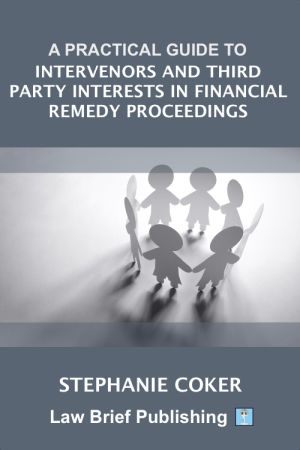
Whose asset is it? Is it yours, mine, your mother’s – who? This question commonly arises in family law financial remedy proceedings when couples get divorced. Assets that may be the subject of dispute involve properties and trust assets. There may also be a dispute over whether monies given to one or both parties during the marriage was intended to be a gift or loan that should be repaid. Until these issues are clarified, it can be unclear which assets should form part of the marital pot and thereafter divided between the parties. In these circumstances, it is pertinent for the Family Court as well as the parties to understand firmly which asset belongs to whom. To unpick these tricky issues, consideration will need to be given to whether third parties should be joined to the proceedings and how best to case manage the matter to avoid unnecessary delay or costs spiraling out of control.
For many family lawyers and litigants, navigating this area and issues can be particularly complicated as they do not involve family law principles, such as fairness, sharing or questions about the party’s needs. Instead, this area involves property and trusts law and is concerned with what the parties intended. This book aims to demystify the legal, practical, and procedural aspects of joining third parties to financial remedy proceedings to assist practitioners and parties steer this area. This guide provides insights into the relevant legal principles, procedural rules, guidance on case management and tips from case law including the relevant questions to ask and at what stage. It also contains arguments that either an intervenor may raise in presenting their claim, or a party defending an intervenor claim.